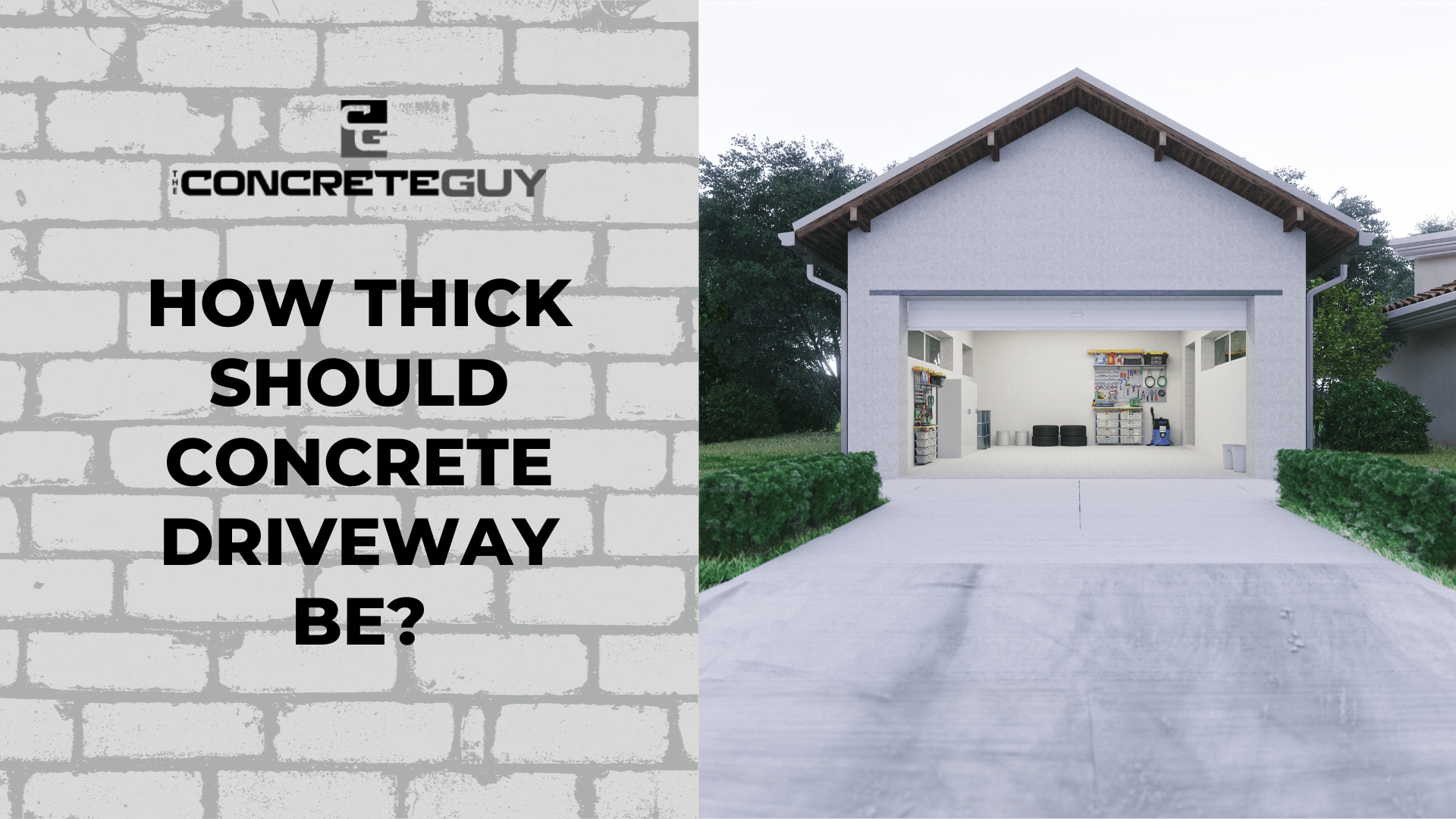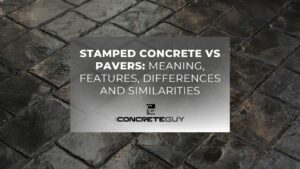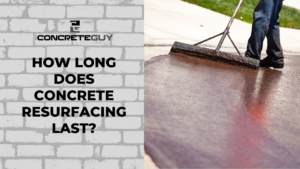When it comes to constructing a concrete driveway, there’s much more to consider than meets the eye. Every homeowner and contractor wants a driveway that not only looks impressive but also stands up to the daily rigors of vehicle traffic. That’s where the question “How thick should concrete driveway be?” Comes into play.
Determining the best thickness for a concrete driveway is an important factor in its long-term success. However, the answer to the question is not one-size-fits-all. Several factors come into play when determining the appropriate thickness for a concrete driveway.
How thick should concrete driveway be?
For residential driveways, a common recommendation is a minimum thickness of 4 inches (10 centimeters). This thickness is suitable for regular passenger vehicles and provides adequate strength and durability. However, if you anticipate heavier traffic or plan to park large vehicles like trucks or RVs on your driveway, a thicker slab may be necessary.
In such cases, a thickness of 5 to 6 inches (12 to 15 centimeters) is often recommended. This increased thickness helps distribute the weight of heavier vehicles more effectively, reducing the risk of cracking or sinking.
It’s important to note that these recommendations are general guidelines and may vary based on specific circumstances. For example, if the soil beneath the driveway is unstable or has a low load-bearing capacity, a thicker concrete slab may be required to provide adequate support.
Climate is another vital factor to consider. In regions with freeze-thaw cycles or extreme temperature variations, a thicker concrete driveway is often recommended to withstand the potential expansion and contraction caused by temperature changes.
Lastly, it’s essential to consult local building codes and regulations. Some municipalities may have specific requirements for driveway thickness to ensure structural integrity and safety. Checking with your local authorities or consulting a professional contractor can help you determine the minimum thickness required to comply with these regulations.
Factors that Determine the Thickness of a Concrete Driveway
The thickness of a concrete driveway is influenced by several factors that need to be carefully considered during the design and construction process. These factors include:
1. Soil Bearing Capacity
The soil beneath the driveway needs to be able to support the weight and load exerted on the concrete slab. If the soil has a low bearing capacity, it may compress under the weight, causing the driveway to sink or crack.
In such cases, a thicker concrete slab is necessary to distribute the load over a larger area and minimize the risk of structural issues.
2. Soil Condition
Soil conditions, including the type and stability of the soil, also play an important role in determining the required thickness. Different soil types, such as clay, silt, sand, or gravel, have varying characteristics that can affect the performance of the driveway.
For example, clay soils tend to shrink and expand with changes in moisture content, which can lead to cracking. In these cases, a thicker concrete slab helps mitigate the effects of soil movement and provides greater stability.
3. Traffic volume
Driveways with higher traffic volumes, such as those in commercial or multi-family residential areas, experience greater stress and wear. The increased load from frequent vehicle use can require a thicker concrete slab to ensure the durability and longevity of the driveway.
4. Presence of heavy vehicles
If the driveway will regularly accommodate large trucks, RVs, or construction machinery, a thicker concrete slab is necessary to withstand the heavier loads. These vehicles exert greater pressure on the surface, and a thicker slab provides the necessary strength to bear the weight without cracking or deteriorating.
Is 2 inches of concrete enough for a driveway?
A 2-inch concrete thickness is generally not sufficient for a driveway that will be subjected to regular vehicle traffic. While it may be suitable for light-duty applications like footpaths or patios, a driveway requires a thicker concrete slab to withstand the weight and impact of vehicles.
A 2-inch concrete driveway may be prone to cracking, sinking, and structural issues due to insufficient strength and load-bearing capacity. It is important to consider the anticipated weight of vehicles, soil conditions, and local building codes when determining the appropriate thickness for a driveway.
Typically, for residential driveways accommodating regular passenger vehicles, a thickness of 4 to 6 inches is recommended. This range provides adequate strength and durability to withstand vehicle loads and minimize the risk of cracking or settlement.
What Type of Concrete is Best for a Driveway?
The best type of concrete for a driveway is typically a mix that is designed for durability, strength, and longevity. Here are some key considerations for selecting the best concrete for a driveway:
1. Strength
The concrete used for driveways should have sufficient compressive strength to support the weight of vehicles and resist cracking. A minimum compressive strength of 3,000 to 4,000 pounds per square inch (psi) is commonly recommended for residential driveways.
2. Durability
Driveways are exposed to various environmental factors and heavy use, so the concrete should have good durability. It should resist cracking, scaling, and other forms of deterioration caused by freeze-thaw cycles, chemicals, and abrasion.
3. Aggregate Size
The size and type of aggregate used in the concrete mix can impact its performance. A mix with a well-graded aggregate, typically ranging from 3/8 to 1 inch (9.5 to 25 mm) in size, helps enhance strength and workability while reducing the risk of cracking.
4. Air Entrainment
Adding air-entraining agents to the concrete mix can improve its resistance to freeze-thaw cycles. These agents create small, evenly distributed air bubbles that allow water to expand and contract without causing damage to the concrete.
5. Admixtures
Admixtures can be added to the concrete mix to enhance specific properties. For example, plasticizers or superplasticizers can improve workability and reduce the water-to-cement ratio, resulting in increased strength and decreased permeability.
Final Thoughts
Several factors come into play when determining the appropriate thickness for a concrete driveway. First and foremost is the anticipated load the driveway will bear. Lighter vehicles, such as passenger cars, require less thickness, while heavier vehicles, like trucks or RVs, demand a more substantial foundation.
To prevent the stress that comes with DIYs, you consult The Concrete Guy. We prioritize customer satisfaction and take great pride in delivering flawless and environmentally friendly polished concrete floors to the communities of Minnesota.
Trust The Concrete Guy for your next project, and experience the difference that comes with working with a trusted, local, and family-owned polished concrete company. Contact us today to discuss your project and let’s create something remarkable together.









